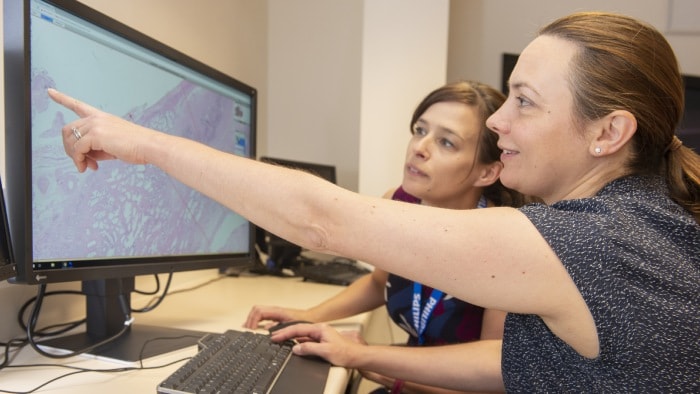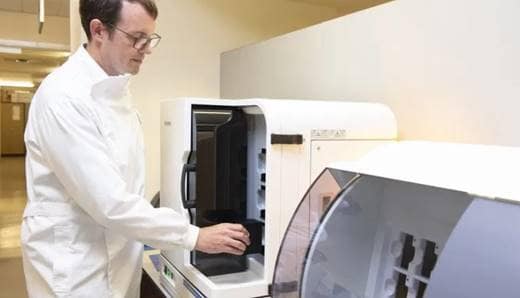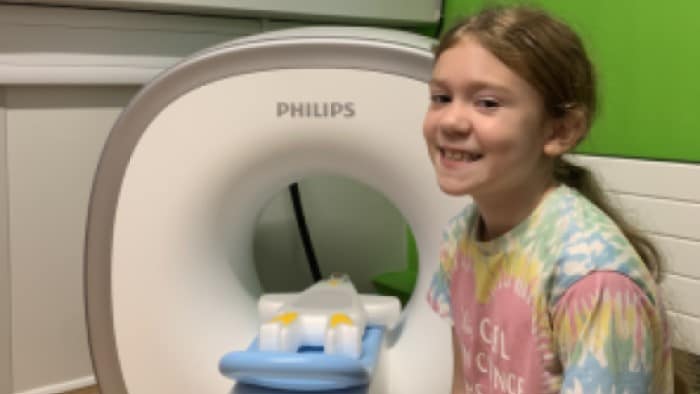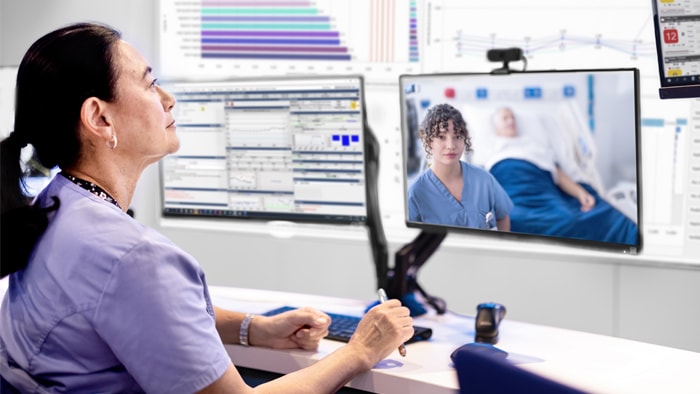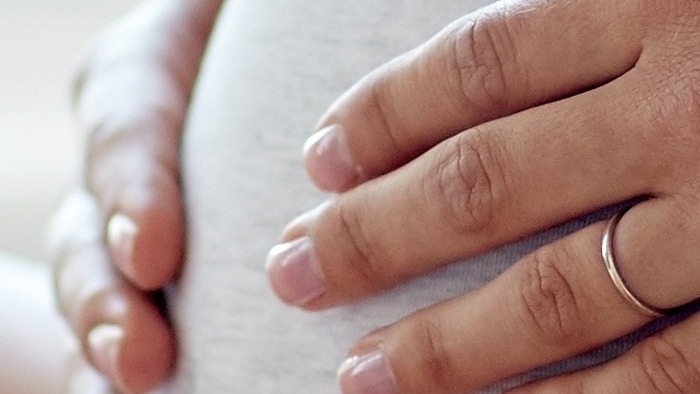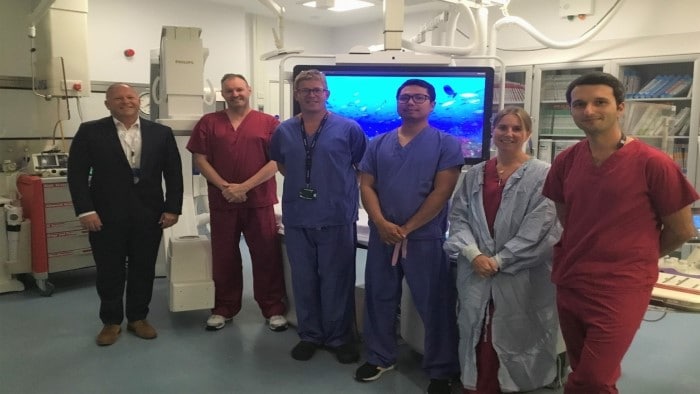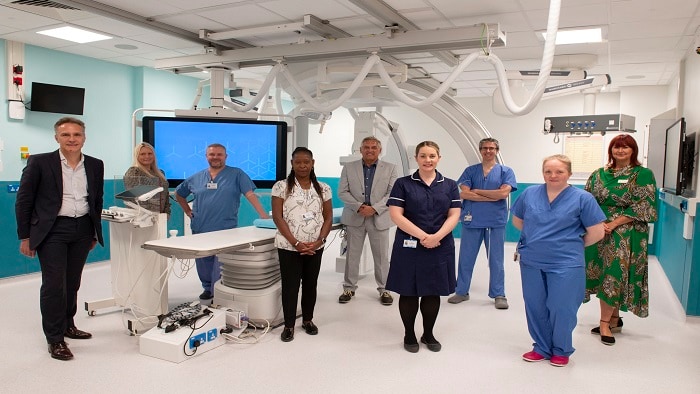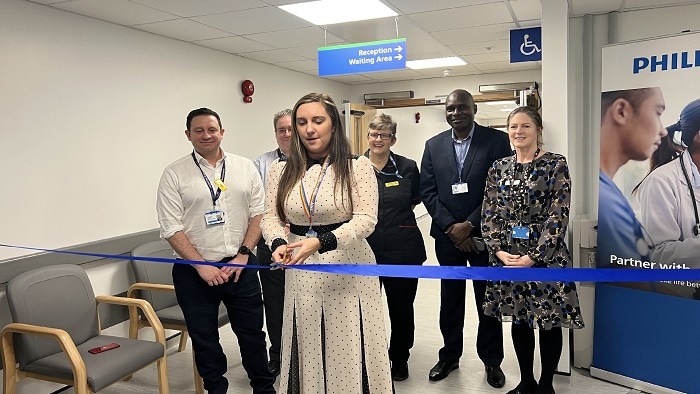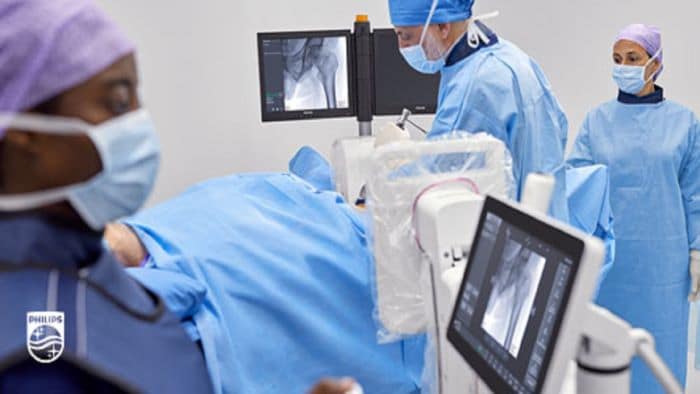Sep 03, 2020
Oxford University Hospitals NHS Foundation Trust’s Cellular Pathology department reaches key milestone: 100% digitisation of surgical histology slides
Guildford, United Kingdom – Royal Philips (NYSE: PHG, AEX: PHIA), has supported Oxford University Hospitals (OUH) NHS Foundation Trust to become one of the earliest UK adopters of a fully digitised cellular pathology (histopathology) department. OUH is one of the first NHS trusts in the country to achieve the status of digitising all surgical histology and referral slides within the cellular pathology department. This step-change is expected to unlock greater collaboration between OUH and its wider network of trusts and pathologists, resulting in more streamlined diagnosis for patients. OUH has installed the Philips IntelliSite Pathology Solution, including three Ultra-Fast Scanners and one Ultra Versatile Scanner. This technology will reduce the pressure on the hospital’s cellular pathology service, supporting the vision of digitally enabled care as outlined in the NHS Long Term Plan. The transition to digital pathology has been driven by the pathology and biomedical science teams working closely together to deliver on a joined-up ambition to fully transition to digitisation.
Introducing these solutions makes OUH better placed to lead the way in setting standards in multi-trust collaboration with regional partners. Its alliance with Milton Keynes University Hospital and Great Western Hospital in Swindon, which are also using the Philips IntelliSite Pathology Solutions, has allowed for multi-disciplinary team meeting cases to be reviewed digitally and for extra tests to be requested if necessary, expediting results and diagnostic decision-making. Professor Clare Verrill, Associate Professor and Honorary Consultant in histopathology at OUH, commented, “We have seen a number of urgent cases where we have been able to provide a rapid opinion through digital solutions. In one case the digital platform enabled us to secure a crucial second opinion in a matter of hours, enabling the patient to start on life-saving chemotherapy treatment that evening. Although it is still early days, we have seen that the Philips IntelliSite platform has great potential to improve diagnosis quality through increased access to further opinions and to help us deliver faster results to patients.” In a recently published article in the Journal of Clinical Pathology, OUH Histopathology Consultant Dr Lisa Browning noted that as a result of the COVID-19 pandemic, there had been a 25% increase in uptake of digital pathology, with pathologists keen to fully validate digitally and provide remote training and ongoing support for this transition successfully via videoconferencing. By fully embracing digitisation, OUH have been able to continue with their medical education programmes, without any negative impact to quality of diagnosis. Through the first wave of the pandemic, the OUH team have not always been able to physically gather as a team but the Philips IntelliSite platform has enabled continued teaching and training of junior histopathologists under remote conditions. Roles for biomedical science staff have also been able to be extended; for example, providing training and slide-viewing sessions for staff taking part in specimen dissection, a role previously undertaken by pathologists.
Professor Clare Verrill is leading the Oxford team for the PathLAKE Centre of Excellence in Digital Pathology and AI of which Philips is the principal industrial partner. Her successful programme on digital pathology and artificial intelligence has been supported by the NIHR Oxford Biomedical Research Centre. The project will create a secure data-lake of tens of thousands of professionally annotated anonymous images for building deep learning algorithms that can automatically detect cancer. These images and tools will be made available across the consortium including a growing number of SME partners in this sector to develop artificial intelligence (AI) to overcome burgeoning workloads in the UK and establish a world-leading UK digital health industry. OUH is a world-renowned centre of clinical excellence and one of the largest NHS teaching trusts in the UK. It provides a wide range of clinical, specialist services including cardiac, cancer, musculoskeletal and neurological rehabilitation, medical education, training and research. The cellular pathology department processes around 60,000 cases per year, resulting in approximately 300,000 slides. Over the years, OUH has invested significantly in the training of its 30 consultant pathologists and highly qualified teams in providing care to the members of its community. Many pathologists in the department have now completed their digital validation so cases can be reported digitally with the remainder of pathologists to follow in the near future. The team continue to work on refining processes, for example creating a ‘one-stop’ reporting portal with macroscopic images of specimens and scanned request forms. For more information about Philips digital pathology solutions, please visit: http://to.philips/6002Godkq https://jcp.bmj.com/content/early/2020/07/02/jclinpath-2020-206786 (accessed: 28/08/20) https://www.nds.ox.ac.uk/research/verrill-pathology-group/research-projects/pathlake (accessed: 28/08/20) https://oxfordbrc.nihr.ac.uk/research-themes-overview/molecular-diagnostics/sub-theme-4-experimental-pathology/ (accessed: 28/08/20) For further information, please contact: Emily Wells- Burr Integrated Communications Manager, Philips UKI Tel: 07825 105 685 E-mail: emilywellsburr@philips.com
About Royal Philips
Royal Philips (NYSE: PHG, AEX: PHIA) is a leading health technology company, focused on improving people’s health and enabling better outcomes across the health continuum from healthy living and prevention to diagnosis, treatment and home care. Philips leverages advanced technology and deep clinical and consumer insights to deliver integrated solutions. Headquartered in the Netherlands, the company is a leader in diagnosis imaging, image-guided therapy, patient monitoring and health informatics, as well as in consumer health and home care. Philips’ health technology portfolio generated in 2016 sales of EUR 19.5 billion and employs approximately 81,000 employees with sales and services in more than 100 countries. News from Philips is located at www.philips.com/newscenter
About Oxford University Hospitals NHS Foundation Trust
Oxford University Hospitals NHS Foundation Trust (OUH) is one of the largest acute teaching trusts in the UK, with a national and international reputation for the excellence of its services and its role in patient care, teaching and research. The Trust supports world-leading research programmes in cardiovascular diseases, musculoskeletal disorders, neurological disorders such as Parkinson’s and Alzheimer’s through its designation as one of the UK’s five comprehensive biomedical centres. It works in close partnership with the University of Oxford and is a leading centre for cancer, neurosciences, diabetes, genetics and many other fields. Research themes of particular strength are: cancer, cardiovascular science, diabetes, endocrinology and metabolism, infection and immunology, musculoskeletal science, neuroscience and reproduction and development. This brings together academic research expertise with clinical teams to translate medical science into better healthcare treatments. Our patients benefit from world-class discovery and innovation supported by the NIHR Oxford Biomedical Research Centre, a partnership between the Trust and the University of Oxford, funded by the National Institute for Health Research. The Trust employs over 12,000 staff and consists of four hospitals: the Churchill Hospital, John Radcliffe Hospital and Nuffield Orthopaedic Centre in Oxford and the Horton General Hospital in Banbury. On 1 October 2015 the Trust was awarded Foundation status and became Oxford University Hospitals NHS Foundation Trust. www.ouh.nhs.uk
About PathLAKE:
PathLAKE is one of a network of five new Centres of Excellence in digital pathology and medical imaging, supported by a £50m investment from the Data to Early Diagnosis and Precision Medicine strand of the Industrial Strategy Challenge Fund, managed and delivered by UK Research and Innovation (UKRI). The PathLAKE consortium comprises some of the nation’s leading digital and computational innovators from NHS and academia. Through the digitisation of five major NHS laboratories and the formation of a computational pathology hub, it will drive AI innovation in pathology for the UK and create the world’s largest depository of annotated digital whole slide images. PathLAKE will ensure that the UK is in prime position to leverage the full value of NHS pathology data to drive economic growth in health related AI. www.pathlake.org
Topics
Contacts
Media assets
Dr Lisa Browning and Professor Clare Verrill, Honorary Consultant in Cellular Pathology at Oxford University Hospital
Kieron White, Biomedical Scientist at at Oxford University Hospital using the Philips IntelliSite Pathology Solution
